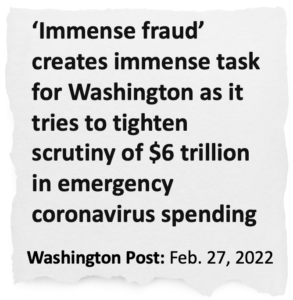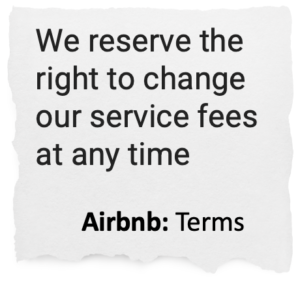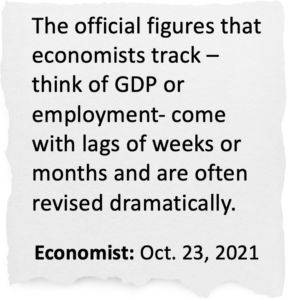 An economy with new data, on-ramps, and potential for interventions will be more diversified and inclusive. That’s a start for all sorts of possibilities.
An economy with new data, on-ramps, and potential for interventions will be more diversified and inclusive. That’s a start for all sorts of possibilities.
1) SUPPORT: Insights, innovation, increments,
POEMs (Public Official E-Markets) will force modernization of public infrastructure for public assistance, as it does for other government services. That, with its precision, inbuilt anti-fraud mechanisms, and possibilities for data-driven targeting could keep welfare efficient, and palatable amid pressure for tax cuts.
“Peer Navigators” are one example of early-stage interventions made uniquely cost-effective to award, administer, and audit by POEMs. In this particular model, a pool of perhaps 50 reliable workers from POEMs’ customer-service markets are trained to support vulnerable people based on each navigator’s lived experience. Clients could then be offered 10 one-hour sessions, each concluding with a pro-forma completed by the navigator who might take their customer through basic assessment of needs, to basic computer and workplace readiness, then support on a first work booking.
 In parallel, initiatives like Earned Income Tax Credits, individual training budgets, or subsidized childcare can all be seamlessly built into work bookings for targeted individuals. POEMs can calculate a range of incentives and entitlements based on a person’s circumstances, availability for work, earnings, and so on. It can do this in weekly lump-sums, or hour-by-hour within each transaction.
In parallel, initiatives like Earned Income Tax Credits, individual training budgets, or subsidized childcare can all be seamlessly built into work bookings for targeted individuals. POEMs can calculate a range of incentives and entitlements based on a person’s circumstances, availability for work, earnings, and so on. It can do this in weekly lump-sums, or hour-by-hour within each transaction.
POEMs will efficiently power a range of government interventions. We offer a detailed briefing covering impact on the safety net.
2) FOOD: Re-sourcing, re-selling, pooling
 Ever-morphing supply chains alongside monolithic corporate platforms should open up local food production. And edibles in danger of wastage can be moved effortlessly, immediately, into redistribution. Pinpointed tax breaks or financial incentives could be applied within each transaction.
Ever-morphing supply chains alongside monolithic corporate platforms should open up local food production. And edibles in danger of wastage can be moved effortlessly, immediately, into redistribution. Pinpointed tax breaks or financial incentives could be applied within each transaction.
At micro-level, pooling of food may spread. This can be on-site; a householder cooking 10 extra kebabs to be consumed in his kitchen by neighbors once their share of costs are in POEMs’ escrow. Or they could be sold within POEMs’ protections for takeaway. An accredited kitchen inspector’s visit can be scheduled if required, perhaps drawing on public funding.
If relief is required on an industrial scale, markets that can instantly resource, staff, and insure facilities like school kitchens for out-of-hours operation are ready. They will also ensure targeted, optimal, local beneficiaries for the meals.
3) HOUSING: Fuller asset use
 Considering renting your room or sofabed? Contrast Airbnb’s charges, control, complex enforcement procedures, and bias towards buyers with POEMs’ predictability. Official status won’t solve every problem. But it brings much lower platform charges, identies checked against multiple government databases and competitive micro-insurance while enforcing everyone’s valuable record of reliable buying or selling through it’s interface to the courts. And unlike Airbnb, there’s transparent, verifiable, localized, data to inform decisions about if, to whom, and when to rent.
Considering renting your room or sofabed? Contrast Airbnb’s charges, control, complex enforcement procedures, and bias towards buyers with POEMs’ predictability. Official status won’t solve every problem. But it brings much lower platform charges, identies checked against multiple government databases and competitive micro-insurance while enforcing everyone’s valuable record of reliable buying or selling through it’s interface to the courts. And unlike Airbnb, there’s transparent, verifiable, localized, data to inform decisions about if, to whom, and when to rent.
 POEMs could grow housing supply in other ways. Offices empty for three months? Assuming entrepreneurial sellers and inspectors, zoning confirmation, rental and drop-off of carpeting or furniture, hire of staff, and premises inspectors could be summoned in a day or so as rooms convert to dormitories. Renting to people officially classed as homeless, perhaps via their Peer Navigators (above), might start on day two. And Accessory dwelling units in back yards or spare land could be fabricated, then safely rented, by any permitted householder.
POEMs could grow housing supply in other ways. Offices empty for three months? Assuming entrepreneurial sellers and inspectors, zoning confirmation, rental and drop-off of carpeting or furniture, hire of staff, and premises inspectors could be summoned in a day or so as rooms convert to dormitories. Renting to people officially classed as homeless, perhaps via their Peer Navigators (above), might start on day two. And Accessory dwelling units in back yards or spare land could be fabricated, then safely rented, by any permitted householder.
Again, micro-tax policy could further reward opening of these assets via POEMs. For example, anyone booking vacation accommodation could be seamlessly offered reduced tourist tax if they let out their home while on a break. This informed, fluid, mobilization of diverse assets and people with resulting possibilities for policy should be seen across healthcare, education and other vital sectors.
4) INGENTUITY: Modelling, trialing, scaling
 POEMs doesn’t sell any particular product, or from a given source. Operators need to drive up activity across every possible sector. They cannot sell or buy themselves, others must be enabled. That should foster innovation, especially useful in a downturn.
POEMs doesn’t sell any particular product, or from a given source. Operators need to drive up activity across every possible sector. They cannot sell or buy themselves, others must be enabled. That should foster innovation, especially useful in a downturn.
Devastating fuel costs offer an ambitious example. Home fuel-delivery apps are a recognized business opportunity with a range of costs. Suppose an entrepreneur wanted to trial direct gas-to-your-tank services to bypass forecourt charges. In 5 minutes research, POEMs will reveal regulatory issues, unfilled demand for the service (users trying to buy and finding no supply) then chart levels of consumption, offers, and pricing for adjacent delivery sectors in any potential launch area.
Government could artificially boost this nascent sector by lifting the Maximum Average Transaction Size embedded in POEMs’ enabling legislation. That means operators can keep the entire flat-rate-percentage system charge for related big transactions like rental of inflammable-liquid storage facilities. These high-value purchases would have no commercial value to the system normally. Releasing them from the cap motivates operators to appoint a franchisee who systematically outreaches to putative buyers and sellers.
Our entrepreneur may draw a blank. Spare capacity in the market for fuel-dumps could be zero. Refinery costs might remain the key component of charges. But POEMs has hugely reduced costs and time for anyone to just try bypassing forecourts in a limited way, then scale if wished. If cheap fuel drops are a non-starter, that datapoint is good news for anyone selling carpool seats, bicycle rental, and countless other transportation modes. And unlike today, each of them can track precise details of those evolving opportunities.
5) AVOIDANCE: Savings, tapers, stabilizers
 POEMs’ liquidity, safety, and exactness extends to its micro-capital markets. Someone with $50 to lend for a week can select a level of counterparty reliability. They can track interest rates, set by the market for each level, but responding to base rates. This could help make saving more tempting than spending in good times. Keynesian public agencies might then respond to designated POEMs’ indices, perhaps releasing budgets assigned for “Guaranteed Work” programs. POEMs can offer learning and flexible employment to the neediest local people as spending goes south.
POEMs’ liquidity, safety, and exactness extends to its micro-capital markets. Someone with $50 to lend for a week can select a level of counterparty reliability. They can track interest rates, set by the market for each level, but responding to base rates. This could help make saving more tempting than spending in good times. Keynesian public agencies might then respond to designated POEMs’ indices, perhaps releasing budgets assigned for “Guaranteed Work” programs. POEMs can offer learning and flexible employment to the neediest local people as spending goes south.
Granularized data could underpin automatic stabilizers. POEMs will track inflation across the micro-economy of course. But it can equally output a graph of costs for “weekend truck drivers living within 10 miles of Springfield City Hall”. If officials wish to set up an intervention to keep the cost within a maximum or minimum using tax or credits, POEMs allows them to try it, assess results, then replicate geographically or across sectors.
 Government should not be the only player. Corporate profits that continue in a tough economy currently flow upwards to big institutions. POEMs strives to attract them back down. Instead of investing in financial maneuvering between global entities, earnings can be put to work by putting people to work in return for a cut of their enhanced earnings. The data, bundling of most profitable target investees, enforcement of conditions, extraction of returns, and after-markets are all open to any size investment.
Government should not be the only player. Corporate profits that continue in a tough economy currently flow upwards to big institutions. POEMs strives to attract them back down. Instead of investing in financial maneuvering between global entities, earnings can be put to work by putting people to work in return for a cut of their enhanced earnings. The data, bundling of most profitable target investees, enforcement of conditions, extraction of returns, and after-markets are all open to any size investment.
